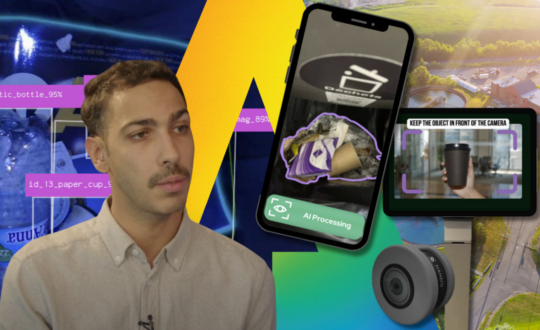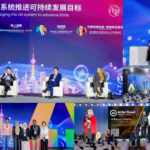How smartphone and chipmakers are accelerating their shift into Artificial Intelligence

Flattening smartphone growth and the promise of using Artificial Intelligence (AI) to enhance user services are increasingly spurring smartphone companies to focus more on producing AI-powered applications on people’s mobile devices.
‘With the advantages machine learning brings to mobile devices, it’s hard not to see this as the future of mobile computing.’ – Dom Galeon, writer, Futurism
Here’s a look at a few developments showing the increase in AI in phones.
Samsung’s investment in AI
Samsung announced Wednesday that it is planning to invest about USD 22 billion into research over the next three years on emerging technologies including AI, 5G and electronic components for cars and bio-pharmaceuticals. The company will also increase its number of AI researchers to 1,000 across the globe, as part of 40,000 new hires over the same time period.
This move will allow the company to diversify from producing phones and chips and take advantage of innovations in emerging technologies.
RELATED: AI will disrupt the world as we know it: Anastassia Lauterbach
The company explains its commitment to AI research on its website:
“At Samsung Research, we are developing innovative Artificial Intelligence (AI) technologies to enhance current business and open up new business opportunities, with the ultimate goal of enhancing human life and contributing to the society.”
According to the website, AI research includes looking into developments in virtual personal assistants, which would allow conversations between devices and users (and would likely build on its existing Bixby personal assistant), as well as visual understanding, which would analyze images to provide timely information to users, and on-device AI, which could help reduce latency and ensure privacy.
The growth of chips with AI
Smartphone Applications Processors (AP)s with on-device AI functionality grew almost threefold year over year in Q1 2018, according to a recent market research report from Strategy Analytics.
“Apple, HiSilicon, Qualcomm and Samsung LSI were the prime beneficiaries of AI’s take off in smartphone APs in Q1 2018, addressing the AI chip market with multiple approaches, including dedicated AI IP blocks and repurposed DSP & GPU combination,” explains Stuart Robinson, Executive Director of the Strategy Analytics Handset Component Technologies service.
RELATED: How to govern AI to make it a force for good: Harvard’s Urs Gasser
“Key AI smartphone APs include Apple A11 Bionic, HiSilicon Kirin 970, Qualcomm Snapdragon 845/835 and Samsung Exynos 9810,” he continues. “Strategy Analytics feels that AI’s full potential is yet to be realized in smartphones and AI will ignite the architecture innovation in smartphone APs in the coming days.”
What it means for consumers
Smartphones are increasingly incorporating AI with the idea of performing services including acting as a personal assistant, improving camera settings, translating languages, adding security and providing automatic customization based on a user’s behavior.
Among other examples, Apple’s iPhone X uses Face ID, an AI facial recognition software to identify a user’s face for security, and its “AI iPhone” and iOS 12 will use Siri to personalize the device.
Huawei uses an AI chip in devices including the Mate 10 Pro and the Honor View 10 for features related to imaging, power efficiency and security.
And Google uses AI on its Android mobile operation system to perform services related to its imaging capabilities and photo apps and to extend the phone’s battery life. There’s also Google’s AI assistant, which will even make phone calls (see video below).
As Dom Galeon, a writer for Futurism wrote in an article published at the World Economic Forum, “With the advantages machine learning brings to mobile devices, it’s hard not to see this as the future of mobile computing.”
The big picture
AI integration into more and more items people use on a regular basis can offer many opportunities to improve people’s lives. But it also raises security, privacy and ethical issues.
Understanding these issues and taking steps to resolve them were topics of discussion at the recent ITU Global Symposium for Regulators as well as the AI for Good Global Summit.













